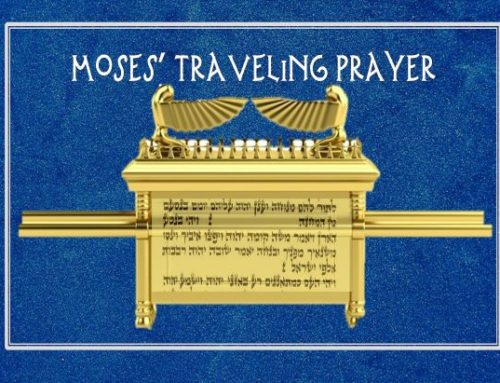Torah Portion, Mikets (Genesis 41.1-44.17, I Kings 3. 15-4.1)
“We have also brought additional silver with us to buy food. We don’t know who put our silver in our sacks.” “It’s all right,” he said. “Don’t be afraid. Your God, the God of your father, has given you treasure in your sacks; I received your silver.” Genesis 43. 22-23 NIV
The story of Joseph and his brothers is rich with layers of the providence of God. A plague that affected Egypt was used to elevate a slave to be the savior of the Middle East, and the succor to the brothers who sold him. Jacob sent money with his sons to buy grain in a famine. Mysteriously, their silver was buried in the mouth of their full grain sacks. Vividly, the text says – “their hearts failed them”.
Their story speaks to today. How do we interpret the hidden things being revealed around us? Do we blame God, or wait for discernment? Might the very thing meant for evil, be used by God for our good? Within each of us is a hidden treasure waiting to be revealed at just the right time.
I. “There it is in my sack! What Has God Done to Us?”
“At the place where they stopped for the night one of them opened his sack to get feed for his donkey, and he saw his silver in the mouth of his sack. “My silver has been returned,” he said to his brothers. “Here it is in my sack.” Their hearts sank and they turned to each other trembling and said, “What is this that God has done to us?” Gen. 42. 27-28 NIV
They discerned God was in the return of their silver interpreting it with a sense that some long overdue punishment would come through this. Would this be the way God would orchestrate justice for their betrayal of Joseph? In fear they imagined the consequences. From the vantage of history, we see that God was in the sale of Joseph, the famine, and the hidden silver, but not to bring judgment but mercy. What they meant for evil, God meant for good. Joseph’s story speaks to us multiple levels. We see ourselves in Joseph’s feeling forgotten. Or like the brothers we dread some secret being discovered. But God has a way hiding treasure in our sack of life, for such a strategic time – a providential treasure of grace.
My friend Sarah, a Jewish believer in Yeshua, revealed how she made Aliyah (immigration) to Israel with her husband and children. Her decision to follow Yeshua was not received well by her sisters, having been the granddaughter of the Chief Rabbi of her town who was now deceased. Surprisingly, just before leaving, her aunt gave her a Hebrew book from her grandfather’s personal library. “He would have wanted you to have this”, she said. Sarah packed the little Hebrew volume alongside their belongings for the move. Years later in Israel, Sarah rediscovered the book. Hebrew was no longer a mysterious language; she opened the book to read its title, “habrit hahadashah,” (The New Testament). This hidden treasure provided much needed encouragement, and a hope that her grandfather had also been a follower of Yeshua, the Messiah.
What treasure has the Lord deposited into your life. Joseph’s brothers did not understand that buried in the sacks was a kindness because of the faithfulness of their fathers.
II. “Return this silver…Perhaps it was a Mistake”
“Take double the amount of silver with you, for you must return the silver that was put back into the mouths of your sacks. Perhaps it was a mistake.” Gen. 43. 12 NIV
Jacob instructed the sons to take a double portion of silver in their sacks. The original price mysteriously hidden in their sacks, and a new payment for the grain saying, “Perhaps it was a mistake.” Though a prophet, he could not discern these events. He gives us an interesting Hebrew word of hopeful uncertainty. We all can identity with such a word at such a time as this.
Our world is faced with a global pandemic, in the same way that Jacob suffered global famine. Perhaps God is in this situation. Perhaps it was unintentional. Surely God will turn all for His glory. Some are like Joseph’s brothers who complained, “What is this that God has done to us?”. (Gen. 42. 28) Many can sympathize with Jacob who said, “Everything is against me!” (Gen. 42. 36) But Jacob’s word of uncertainty, acknowledged not only the possibility of the one but the likelihood of the Creator’s providential hand. The question was, what did it all mean?
III. “Your God has Given You Treasure in Your Sacks”
“It’s all right,” he said. “Don’t be afraid. Your God, the God of your father, has given you treasure in your sacks; I received your silver.” Gen. 43. 23 NIV
When they returned to Egypt the men explained that a mistake may have been made with the money. They assured the servant of Joseph that they were returning the previous payment. He responded by saying, “I received your money”. The God of your fathers has given you treasure in your sacks. The word for “treasure” means hidden or buried.
In truth, Joseph was responsible for the return of their silver, and the final hidden treasure placed in the sack of Benjamin, Joseph’s silver cup. Joseph’s buried silver cup brought all the brothers to reconciliation, and the family of Israel to salvation.
Conclusion
This Torah Portion speaks of providential provision. In the midst of worldwide suffering, Jacob’s little flock was not exempt. But, the very famine was a means to bring Joseph back to the father, and the brothers to reconcile with Joseph. Jacob could not see the hand of God, and often we cannot either. Perhaps God is using a famine to reconcile many to their savior? I am convinced that provision has already been made, for those who are called of God. On their initial journey home, an unnamed brother found his money in the mouth of the sack. Only later when they all arrived did the remaining brothers open their sacks to find their own hidden treasure. It may yet be time for your treasure to be revealed. Perhaps it will be a letter hidden in a book on the shelf? Whatever it is, even times of difficulty such as Corona cause us to look with “hopeful uncertainty” – perhaps God is in this too.
Shavua Tov from Zion




